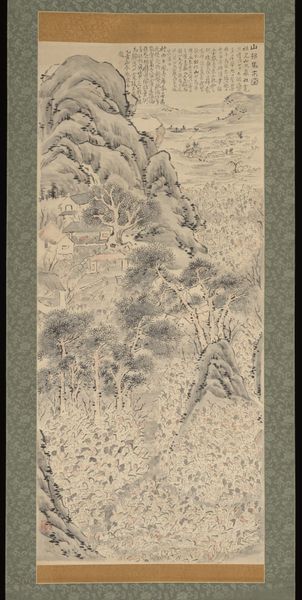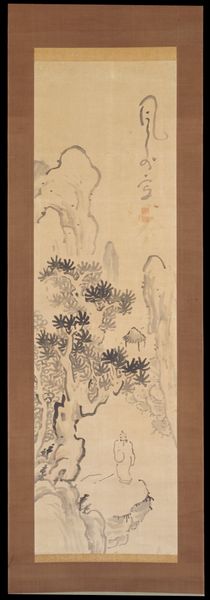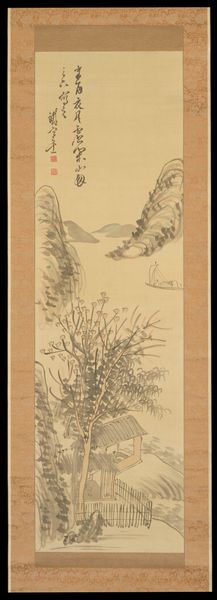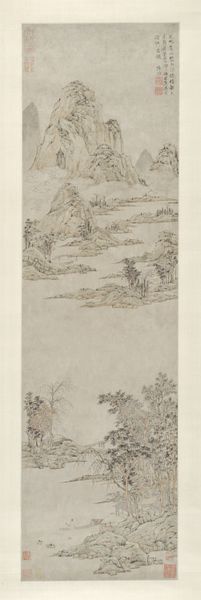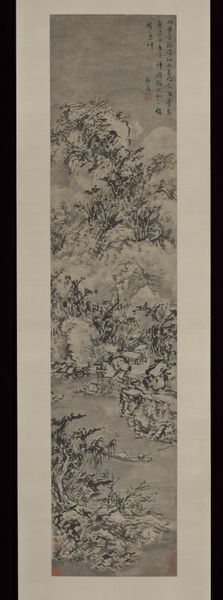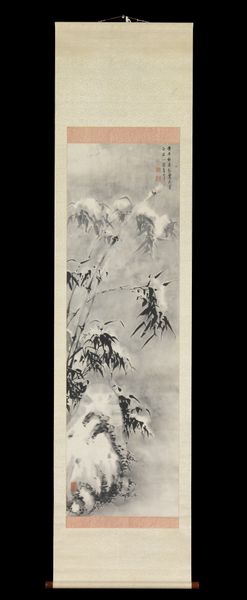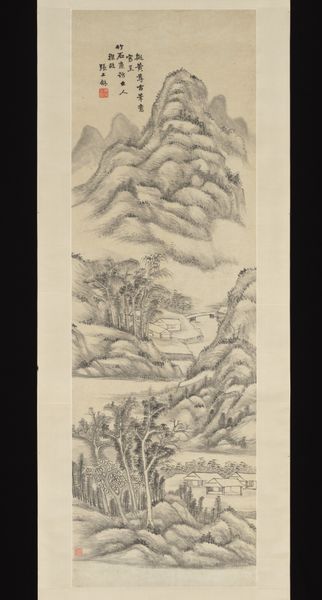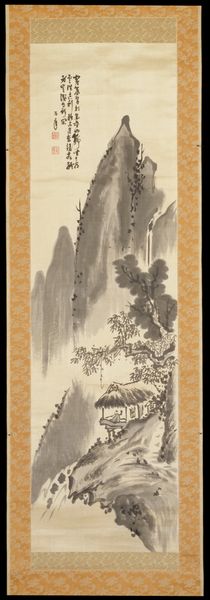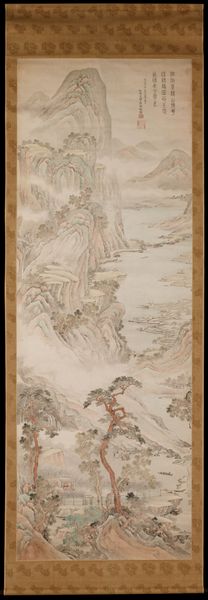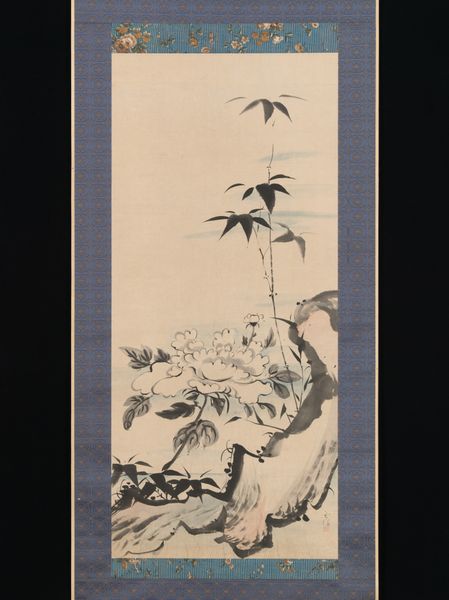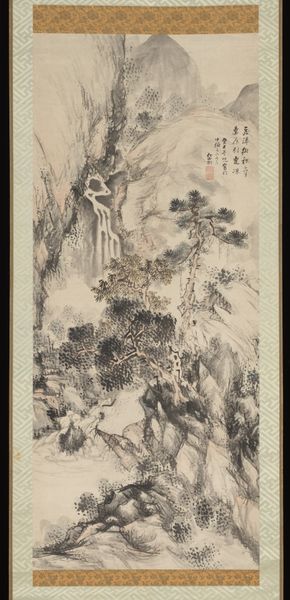
Emperor Enyū’s Outing to Funaokayama on the First Day of the Rat in the New Year 1800 - 1868
0:00
0:00
drawing, ink
#
drawing
#
ink drawing
#
pen sketch
#
asian-art
#
landscape
#
ukiyo-e
#
figuration
#
ink
#
line
Dimensions: Image: 61 13/16 × 37 1/2 in. (157 × 95.3 cm) Overall with mounting: 93 11/16 × 44 3/8 in. (238 × 112.7 cm) Overall with knobs: 93 11/16 × 46 3/8 in. (238 × 117.8 cm)
Copyright: Public Domain
Reizei Tamechika painted this ink artwork depicting Emperor Enyū’s procession to Funaokayama, a traditional outing on the first day of the Rat in the New Year. The procession teems with symbolism. Note the pine trees, stoic and evergreen, scattered throughout the scene. This tree is an emblem of longevity and steadfastness in Japanese culture, often associated with the divine. We find a similar reverence for evergreens in ancient Roman art, where laurel wreaths symbolized victory and immortality. Like the laurel, the pine embodies a wish for enduring power and prosperity. The procession itself—the movement of people and objects through space—speaks to the passage of time and the cyclical nature of existence. Think of the triumphal arches of Rome, designed to channel the energy of victorious armies, or the religious processions of the Renaissance, each a public demonstration of faith. Such processions are potent symbols of collective memory, reminding us of the continuity of culture and tradition.
Comments
No comments
Be the first to comment and join the conversation on the ultimate creative platform.
